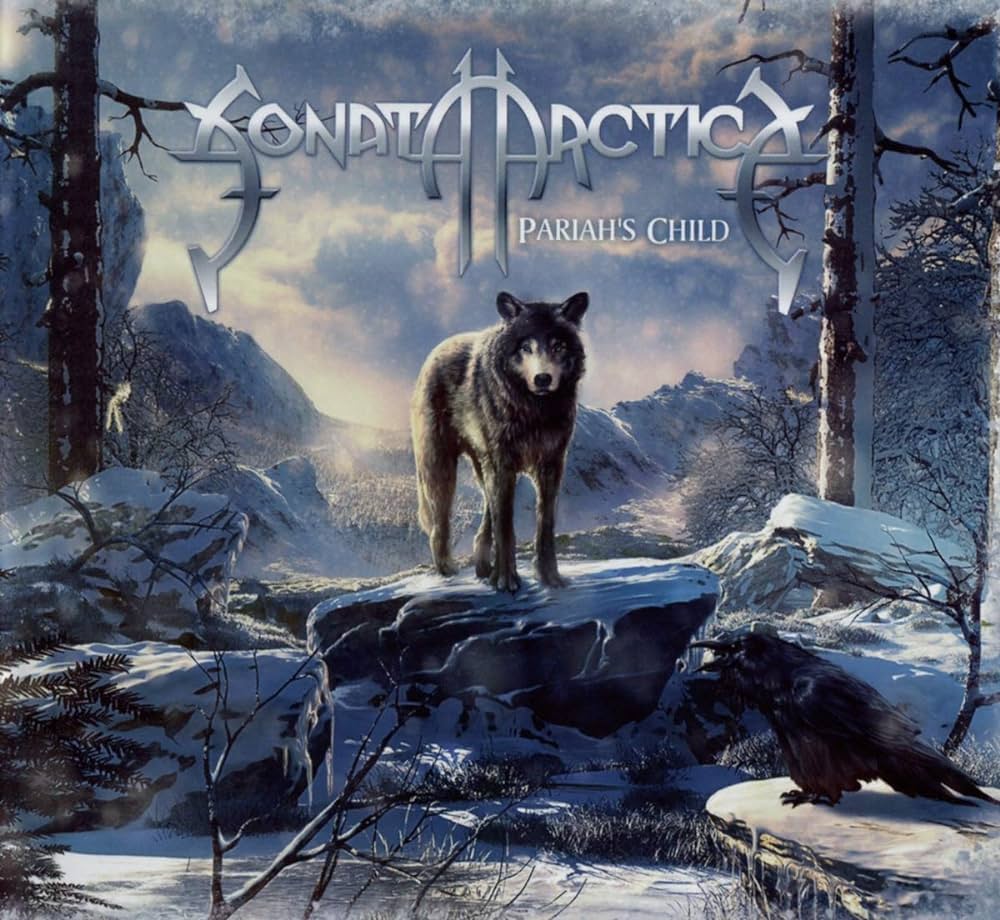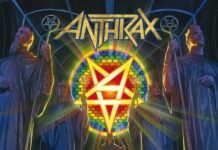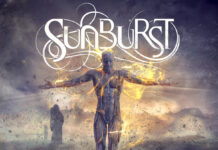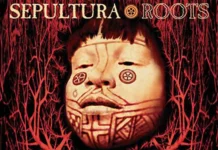If you’ve been around the Finnish musical block, you certainly know SONATA ARCTICA by now. Having been one of Finland’s premiere power metal bands back in the day, they’ve now recently released their eleventh studio album. However, today we’re looking back at “Pariah’s Child,” which was released on this day, March 28th, back in 2014. The album promised to return to their power metal roots, while maintaining their modern style and flare. So, how does this album hold out for its 10th anniversary? We’re about to find out!

“The Wolves Die Young” is a solid starting track – kind of a catchy radio-friendly song. I can imagine some of the grumpier fans might think it’s too cheesy but on the whole, this is a pretty fun track and some of Tony Kakko‘s vocal lines are pretty solid. The keyboards in the chorus add some nice flavor and the solo is also pretty strong. Ultimately, it’s a good song to have as a single and a starter for the album.
“Running Lights” is one of those songs where I didn’t realize before now how obvious the song’s name is – literally about cars and driving fast, running lights. This is a pretty traditional SONATA ARCTICA song, with that promised power metal kick, making for a solid speedy followup to the catchy first track. Then, there are some echoes from “The Days of Grays” in “Take One Breath,” particularly in the overall keyboard sound, though the pianos in the beginning feel like they’re building up to “Cloud Factory” to follow. It’s a pretty bright and cheerful track, in a good place to build up excitement for the next song.
“Cloud Factory” was another single, perhaps a bit simple-sounding at first, but has a rather joyous, youthful feel. Again, it’s kind of cheesy, but it’s catchy and fun. I seem to recall this song being about the town they grew up in, though the lyrics are very fun to interpret in different ways. Bar choirs back the first half of the guitar wankery in the solo, though it’s a bit odd that they cut out for the second half. As the song heads toward the end, Tony Kakko gets to edge around circus-level weird, which is perhaps my favorite part of the song (and I don’t always love it when he does that, but we’ll get there).
“Blood” is often considered one of SONATA ARCTICA‘s most fascinating progressive-leaning songs, with pretty interesting lyrics. We spent a little bit of time trying to make sense of them and it seems to be interested in how fear destroys everything. There’s a slow, dramatic, ominous, and eerie piano intro leading up to the first vocal lines that appear to talk about life/existence and how fear is man’s downfall. Then there’s a spoken-word information segment before the melody starts to take hold. There’s a soft progression up to the bridge, which has some speedy drums, but softens to another verse before approaching the fast and furious chorus, and then the pace keeps up afterwards… honestly, this is a pretty great song!
There’s some great keyboard work in “What Did You Do in the War, Dad?” This is a pretty sad song, from the perspective of a child, wondering what his father has been through… it’s quite a heavy song, lyrically and conceptually. The music nicely emphasizes the mood, with a hint of that proggy strangeness as it heads into the chorus. Next, there’s an unusual pick in “Half a Marathon Man,” which is led by drums and bass and almost flamenco-styled guitars, after which it turns surprisingly rocking. This makes the keyboard sound stand out, but whether or not you like that is surely a personal choice. The repetition of “it’s a beautiful day” is wonderfully cheesy and pretty uplifting. It ends on more soft acoustic strumming, still teasing a hint of flamenco.
The album hits its low with “X Marks the Spot.” I’m sure there are people out there that like this track, but this is probably Kakko‘s weirdness coming out in a way that doesn’t really work for me. The lyrics are blocky and have no real melody; rather, it sounds like he’s sing-talking nonsense and didn’t bother to make it sound like music, so all of the vocals sound strange and forced. Furthermore, the music doesn’t really do much to improve it and the vocal parts are way too loud in the mix. Even more unfortunately, this seems to have been their favorite song from the album, so we had to endure a lot of this nonsense live for a few years. Thankfully that’s over now – X clearly did not mark the spot. Also, the preacher in the song feels like he’s trying hard to do a classic southern American preacher voice, but it isn’t really what it’s trying to be.
“Love” is a pretty traditional slow love ballad and the music video really helps drive it home, following the lives of a little boy and girl as they experience life together. It’s a bit simple, so chances are your taste for this one will relate more to how much you enjoy ballads and love songs. There’s a wonderful, theatrical intro to “Larger than Life,” which works as the grand epic finale to the album. Tony Kakko sounds like he’s on a stage, melodramatically performing in a play, but this suits the song far better than his antics in “X Marks the Spot.” Really, this song pretty much spans a lot of things that SONATA ARCTICA have done before, as well as throwing some new things in there. Ultimately, it’s a surprisingly decent song, considering it seems they went all-out.
All-in-all, “Pariah’s Child” is an album that you shouldn’t disregard if it didn’t pique your interest on first listen. There’s a bit of a progressive slow burn to a lot of the songs on this album and some of them benefited from closer inspection before they really started to stand out. There are a lot of interesting experiments, for better or for worse, and there’s still a good deal of power metal and cheese, so all-in-all, this is a pretty solid release from SONATA ARCTICA that has earned its position in their discography.
Tracklist
- The Wolves Die Young
- Running Lights
- Take One Breath
- Cloud Factory
- Blood
- What Did You Do in the War, Dad?
- Half a Marathon Man
- X Marks the Spot
- Love
- Larger than Life
Lineup
Tony Kakko – vocals
Elias Viljanen – guitars
Pasi Kauppinen – bass
Henrik Klingenberg – keyboards
Tommy Portimo – drums





